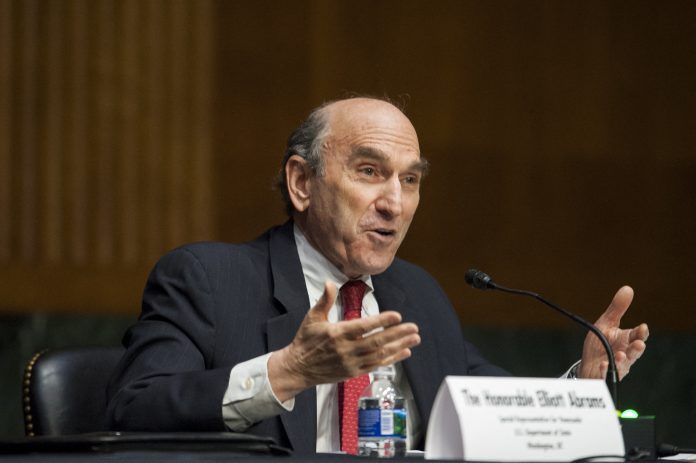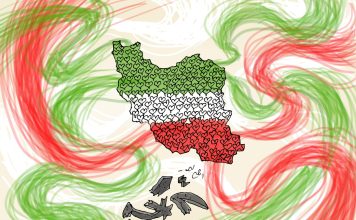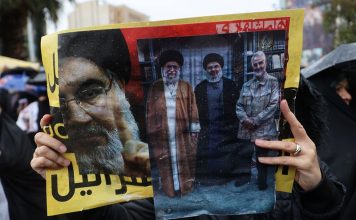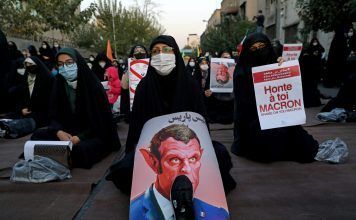By Arshad Mohammed and Michelle Nichols
WASHINGTON/UNITED NATIONS, Sept 16 (Reuters) – The United States said on Wednesday it plans to impose sanctions on those who violate a U.N. arms embargo on Iran, which Washington says will now stay in place instead of expiring in October as agreed under a 2015 nuclear deal.
U.S. Special Representative for Venezuela and Iran Elliott Abrams said Washington could deny access to the U.S. market to anyone who trades in weapons with Iran, which President Donald Trump’s administration accuses of seeking to develop nuclear weapons.
Iran has denied it is developing nuclear weapons.
In 2018 Trump quit the Iran nuclear deal – under which Tehran limited its nuclear activities in return for sanctions relief – and reimposed U.S. sanctions. Washington also says it has triggered a return of all U.N. sanctions on Iran, which would take effect this weekend.
But the other parties to the nuclear deal – Britain, China, France, Germany and Russia – and most of the U.N. Security Council have said they do not believe the United States can reimpose the U.N. sanctions.
“It’s like pulling a trigger and no bullet comes out,” a senior U.N. Security Council diplomat said on condition of anonymity. “There will be no snapback, the sanctions will remain suspended, the JCPOA (nuclear deal) will remain in place.”
Asked if Washington is “making concrete plans now for secondary sanctions” to enforce the arms embargo, Abrams told reporters: “We are, in many ways, and we will have some announcements over the weekend and more announcements on Monday and then subsequent days next week.”
Diplomats say few nations are likely to reimpose U.N. sanctions on Iran.
Earlier on Wednesday, U.S. Secretary of State Mike Pompeo told reporters, “We’ll do all the things we need to do to ensure that those sanctions are enforced.”
Iranian President Hassan Rouhani on Wednesday described the opposition to Washington as a “victory of the Iranian nation and the disgraceful defeat of the United States in activation of the snapback mechanism.”
(Reporting by Arshad Mohammed, Doina Chiacu and David Brunnstrom in Washington, Michelle Nichols at United Nations and Parisa Hafezi in Dubai Writing by Arshad Mohammed Editing by Matthew Lewis)








